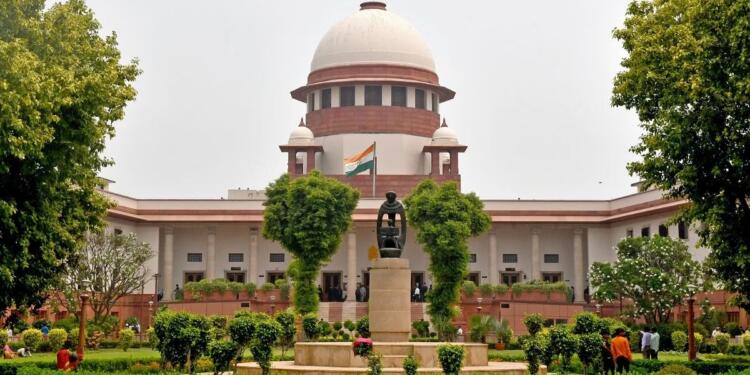The Supreme Court is slated to hear, on Tuesday, a public interest litigation (PIL) challenging the constitutional validity of a provision of the Places of Worship Act (PoWA), 1991.
As per the causelist published on the website of the apex court, a bench of CJI Sanjiv Khanna and Justice Sanjay Kumar will hear the latest plea in the row on April 1.
The CJI Khanna-led Bench is already seized of a clutch of pleas challenging the validity of the contentious law, which prohibits the filing of a lawsuit to reclaim a place of worship or seek a change in its character from what prevailed on August 15, 1947.
In an interim order passed on December 12, 2024, the Supreme Court had ordered that no fresh suits would be registered under the Places of Worship Act in the country, and in the pending cases, no final or effective orders would be passed till further orders.
As per the latest petition filed through advocate Shweta Sinha, Section 4(2) of the 1991 Act is manifestly arbitrary, irrational and violative of Articles 14, 21, 25, and 26 of the Constitution.
“This provision not only closes the doors of mediation but also takes away the power of the judiciary. The legislature cannot take away the power of the judiciary to preside over disputes. This has been done through colourable legislation,” stated the plea.
In March 2021, a Bench headed by then Chief Justice of India S.A. Bobde sought the Centre’s response to the plea filed by advocate Ashwini Upadhyay challenging the validity of certain provisions of the law, prohibiting the filing of a lawsuit to reclaim a place of worship or seek a change in its character from what prevailed on August 15, 1947.
The plea said, “The 1991 Act was enacted in the garb of ‘public order’, which is a state subject (Schedule-7, List-II, Entry-1) and ‘places of pilgrimages within India’ is also a state subject (Schedule-7, List-II, Entry-7). So, the Centre can’t enact the Law. Moreover, Article 13(2) prohibits the State from making a law to take away fundamental rights, but the 1991 Act takes away the rights of Hindus, Jains, Buddhists, and Sikhs, to restore their ‘places of worship and pilgrimages’, destroyed by barbaric invaders.”
“The Act excludes the birthplace of Lord Rama but includes the birthplace of Lord Krishna, though both are incarnations of Lord Vishnu, the creator and equally worshipped throughout the world, hence it is arbitrary,” it added.
Congress petitioner in SC in support of PoWA
The Congress had earlier approached the Supreme Court urging the apex court to intervene in cases filed against the validity of Places of Worship (Special Provisions) Act 1991 (PoWA). The act claims to preserve the character of religious places as they existed on August 15, 1947, however, by barring the Hindu petitioners, it has been causing hindrance in the delivery of Justice.
The Congress has argued in its intervention that it was in majority when the legislation was enacted by the Parliament. Supporting the controversial act that has a skewed bias against the Hindu community, it has said that the PoWA is essential to maintain the communal harmony and secularism of the country.

























